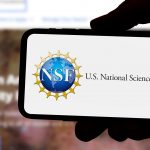“The Big Lie”: How Fact-Checking Influences Support for Jan. 6 Attack on the Capitol
Political Communication Trust
After Donald Trump lost the 2020 election, he tweeted more than 75 election fraud claims, many of which have been embraced by his supporters and other members of the Republican Party, and significantly precipitated the Jan. 6, 2021 attack on the U.S. Capitol. Dedication to this false election fraud narrative, known as “The Big Lie,” was a catalyst for further investigation.
What contributed to belief in such a falsehood? In this case, cognitive processing styles suggest Trump supporters’ attachment to the Republican Party, or to Trump himself, led them to reject evidence that opposed their preexisting beliefs. Previous research has shown that a person’s political party prominently influences whether they accept or reject certain information. Another contributing factor is dual-process theories, which suggest that people can either reflectively analyze evidence or take a more heuristic approach of constructing narratives that align with their partisan beliefs. Those believing in “The Big Lie,” fall into the latter category.
With all this in mind, Juliana Fernandes, University of Florida College of Journalism and Communications Advertising Assistant Professor, and colleague David Lynn Painter of Rollins College, conducted an experimental investigation to explore the influence of cognitive processing styles in response to election fraud fact-checking. In addition to better understanding the processing styles at play, such information could help close the gap in political legitimacy, or improve trust in the electoral process, especially among those who voted for the losing politician.
The study included 737 adults, about half of whom were female and most of whom were 30-49 years old, ranging nearly equally between Democrats and Republicans, and tested hypotheses positing that:
- Exposure to election fraud fact-checking information would increase confidence in the legitimacy of the 2020 election
- Democratic participants would express greater confidence in the legitimacy of the 2020 election than Republican participants
- Participants’ support for Donald Trump will be inversely related to their confidence in the legitimacy of the 2020 election, and
- Participants’ cognitive reflexivity—that is, the ability to make decisions rooted in science rather than magical thinking—will be positively associated with their confidence in the election’s legitimacy.
Results showed that all four hypotheses were supported, indicating that election fraud fact-checking may correct viewers beliefs but does not necessarily change partisan attitudes toward the Capitol Hill attack. In fact, the survey showed a serious partisan divide was maintained: while 80% of Americans believe there is a threat to democracy, Democrats most frequently cite voter suppression as the threat while Republicans call out voter fraud.
Being that this large gap in political legitimacy and perspectives on the attack itself persist outside of an election signals that a more insidious partisanship issue is at play and a potential threat to the US political system.
The original article, “The Big Lie”: How Fact-Checking Influences Support for Insurrection,” was published in American Behavioral Scientist, published May 18, 2022.
Authors: David Lynn Painter, Juliana Fernandes
This summary was written by Jessica Berube, M.A.M.C. 2021.
Posted: June 23, 2022
Insights Categories:
Political Communication, Trust
Tagged as: Big Lie, Capitol Attack, Juliana Fernandes, Voting Fraud


